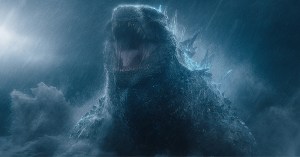Game of Thrones Stars John Bradley and Isaac Hempstead Wright Review That Critical Season 7 Scene
If the Three-Eyed Raven were invited to show up in a prequel, Wright says, "I wouldn't say no."

When last we left our heroes Samwell Tarly and Bran Stark, they were having a chat about a Game of Thrones wedding that didn’t immediately end in bloodshed — that we know of anyway. In a departure from the standard operating procedure for HBO’s fantasy series, the nuptial-tied death and mayhem was delayed until a later date.
Sam and Bran’s talk in the finale of season 7 (released this week on Blu-ray and DVD) confirmed Jon Snow’s parentage and his claim to the Iron Throne, which will be a critical plot point for the last season. Sophie Turner, who plays former wannabe princess–turned–political operative Sansa Stark, recently broke fans’ hearts worldwide by revealing to Variety that the series will return for its eighth and final season in 2019.
In the meantime, we spoke to John Bradley, who plays cerebral Sam — best friend to Jon and AWOL from maester-training center, the Citadel — and Isaac Hempstead Wright, who appears as Bran — aka the next-gen Three-Eyed Raven and the youngest of the surviving Stark family.
The duo’s characters have met before, so the cozy scene in front of the fire at Stark HQ in Winterfell was a reunion. It’s also a pivotal moment in the series. Here’s what they had to say about that and being part of the most-watched episode of one of TV fans’ top shows of the past 20 years.
Isaac Hempstead Wright | John Bradley

Isaac Hempstead Wright on the Limits of Bran’s Power and Losing Littlefinger
Debbie Day for Rotten Tomatoes: Your last scene of the season showed us some limitations of Bran’s special powers, of his sight, and I was wondering if you could tell us a little bit about those limitations.
Isaac Hempstead Wright: Basically, as I understand it, the way Bran’s power works at the moment is — it’s like he’s got a dictionary in front of him, the whole of time. And he’s got access. He can look up anything he wants and that’s kinda what the old Three-Eyed Raven was doing, he was saying, “Look, these are some important dates, these important events, you have to see this, you have to see this,” and that Three-Eyed Raven had been in the cave for a thousand years, and had looked through every single page, has memorized every single page, whereas Bran now he’s just been given this huge book, and he’s been looking through it, he’s gone through the sort of key dates, but hasn’t looked through all of time, just yet. He doesn’t have access to every single thing that’s happened, he still needs to be reminded of places to go and still needs to be told what to look up.
And that’s kind of Bran in season 7, is almost in many ways, a bit overwhelmed, as the new Three-Eyed Raven with all this information. And I think that’s almost why he’s almost in those first episodes almost emotionally void, and focused, because he’s just trying to spend every minute looking through everything in time and knowing how the whole universe fits together.

In the flashback, he bears witness to an incredibly touching and beautiful moment: the marriage of two people who love each other very much. At the same time, he’s probably seeing a lot of horrific, terrible things. Do you think about about how affected he is by that? Does he have PTSD from seeing all of these horrible things?
Wright: I think the job description of being the Three-Eyed Raven requires you — in order to not have some kind of PTSD total trauma — to switch off a lot of your human traits, because if you were a human who was forced to live every single thing that’s ever happened in the world, your brain would fry, you’d go completely mad, and you’d just break down and stop functioning. And I think when you become the Three-Eyed Raven, it’s sort of a little bit like, the human in you has been pushed to the back and you are now a vehicle of, like, time in many ways. You are the keeper of the history of the world. And therefore, you have to be strong enough not to let it completely break you apart.
And I think that works on the flip side as well. It means that when you do see wonderful, beautiful and amazing things, you’re not standing there jumping for joy, and going, Oh, this is so lovely. You’re just responding to it, on a kind of just objective — you’re an observer to all of time, good and bad, and it’s that union, I think, that you’re not totally traumatized by it, and you’re not totally thrilled by it either. You’re just a steady keeper of history.

Both as a performer and in the mind of the character, were you glad to get back to Winterfell after all of the snowy, snowy scenes?
Wright: Yes! Yeah well actually, I’d been in a set for a little while, which was nice; I was in the cave with the Three-Eyed Raven. I was quite happy in the warm there. To come back to the — it was quite a muddy set, the Winterfell set. I was not thrilled to be honest. [Also], that set has got a lot of history for me, being the first I literally sort of stepped foot on, back in those very, very early days, and so it was emotional to be sort of properly back there, especially after all that had happened there, getting burnt down and pillaged, to then Ramsay taking it over.
But as Bran, I think, there’s not such significance to places anymore, I think he appreciates it because it’s an important historical epicenter; it’s a place where a lot of interesting things have happened, not only for him, but for lots of other characters throughout the history of Westeros, and so he’s interested to be back. But it’s not like he came back nostalgic, “Oh, it’s good to be home, guys! Welcome back.” So again, there were so many things that Brandon sees in season 7 that were bittersweet … You’d expect huge excitement, you know, floods of tears, and of course we don’t get that with Bran, because the part of him that Bran Stark is, makes up a very small segment of the entirety of his new identity now. So yeah, it was bittersweet to return to Winterfell.

You were also part of one of the most satisfying scenes of the series for fans: the execution of Littlefinger. Did you and the other actors in the scene feel as much satisfaction in reaching that moment as it was for viewers watching that moment?
Wright: It was a shame actually to lose Aidan Gillen, our lovely actor who plays Littlefinger. And it was, more than anything, just amazing to watch him working on the set that day: that whole arc, within that scene, of how he casually sitting on that wall, and getting to watch him panicked, responding, reduced from his perch — where he thinks he looks over everyone and has everything put down and everything pegged down, and understood — to watching in a matter of minutes descend to the lowest position he’s ever been in his entire life, begging for his life, from Sansa. It was spectacular to watch. And yeah, certainly satisfying — and Arya, when she sweeps with that effortless [slice] — watching this man effectively get tumbled down. All the words he put into managing people, and all of his conniving couldn’t help him in those last seconds.

With all the prequels in development and given Bran’s gifts, he could show up at any time.
Wright: That’s what I’m hoping.
I hope so.
Wright: I’m hoping I’m in every single prequel. I never have to work on anything that isn’t Game of Thrones again, for the rest of my life. [Laughs.]
Seriously or are you just saying that?
Wright: I’m joking. I mean, it would be fun. There’s so much in the history of Westeros I would love to be involved in, and I’ve got to be a small part of some of those bits and get to sort of observe some of those early things going on in the world. I would love, yeah love, to be able to be a part of any of it, any of the history. So if they offered me to come back for a day and sort of, pop by, and have a look at some scene back from King Aerys or whatever, I wouldn’t say no.
Do you have a favorite moment outside of the immediate series, any part of Mr. Martin’s many, many stories?
Wright: I mean, the whole [civil war] era of the Dance of Dragons — that’s a really real cool time in Westeros’ history. To me, I’ve been most fascinated with the very early days, the First Men and the Andals… My favorite vision was getting sent back to the creation of the first White Walker. That was so cool. I love those very, very early evolutionary days in Westeros’ history, which set up that conflict in that country.
And I’d also like to know — because we’ve seen a map of the world and, I don’t know, is that the whole world? Is there something that’s further east of Essos or further west than Westeros? I’d like to see either. I’d like to see what George R.R. Martin comes up with about that.

We all miss Hodor so much. If Bran needed to like relax, would he just go back in time and visit Hodor? As sort of, like, a Bran vacation — a Bran-cation?
Wright: I mean yet, the power is sort of being wasted on Bran. If you gave it to anyone else, he could go out and chill out at a nice beach or wherever, or like, hangout and play some tennis or something, because Bran’s never been able to walk, but unfortunately he’s aware he’s got a higher purpose. Everything he does has to have a reason.
Like the times when he just wanted to spend more time with his father —
Wright: In season 6 when Three-Eyed Raven was showing him back in time with his father, Bran was so, so enthralled in it and was mortified every time he was pulled out of the vision, what the Raven was trying to tell Bran is that, “You can’t stay under the sea for too long, because you’ll drown. You can’t live in the past, you have to learn from it and move on from there.” And I think that wisdom has been passed to Bran, and he’s not just using his powers to go and stay back in time and escape from the grim reality they all face. So yeah, with the biggest power in all of Westeros comes huge amount of responsibility. It changes you from — when you become the Three-Eyed Raven, you do become the Three-Eyed Raven, it’s not just you know, it’s not just an added little power, it’s all consuming, you have to dedicate your whole body to it.
I think that maybe makes people — including me — just a little sad.
Wright: Yeah, I know. I mean there is still a hint of Bran in the back, and I think perhaps also by the end of the season, with Samwell, I certainly felt like Bran was starting to become a character again. I think it was a bit overwhelming at the start, suddenly having this huge information overload and it kinda did, zombify him, and turn him into just a computer, but as he sort of comes to grips with it, he will become wiser and more like the sort of Max von Sydow Raven we saw.
Isaac Hempstead Wright | John Bradley
Game of Thrones: The Complete Seventh Season is now available on Blu-ray and DVD.






